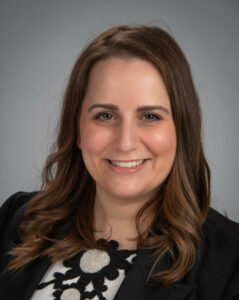The U.S. just airlifted 70,000 pounds of baby formula from Europe as frantic parents struggle to find food for their infants with store after store offering only empty shelves.
In the meantime, in the face of Republican criticism, the White House defended sending formula shipments to illegal immigrant families at the border as “morally right.”
And breastfeeding is not always an option. There are numerous health conditions for mothers and babies that can prevent or limit breastfeeding. Additionally, adopted or foster babies don’t always have access to breastmilk.
Congresswoman Mary Scanlon (D-Delaware/Philadelphia) and other representatives sent a letter to President Joe Biden urging the White House to act. Biden recently activated the Defense Production Act to order companies to increase formula production.
“The [baby formula shortage] is so pronounced that the nationwide out-of-stock rate for baby formula has hit 43 percent — up from between 2-8 percent in the first half of 2021 — and is continuing to climb,” the Scanlon letter said.
Molly Beitman, a clinical dietitian from the Nemours Children’s Hospital, told Delaware Valley Journal the baby formula shortage isn’t just affecting retail chains.

Molly Beitman
“I can say in the hospitals, it is really creating an impact on the interdisciplinary team,” Beitman said. “It is taking great communication and coordination from everyone, including medical providers, dietitians, and social workers to be able to triage what the options are for every patient. It is creating a question of a safe discharge plan for each family that utilizes infant or toddler formulas.”
According to the CDC, 14.5 percent of Pennsylvania babies receive formula before they are two days old, which means they may be fed formula before being discharged from the hospital.
“Across the country, parents are struggling to find adequate, reliable sources of baby formula,” Scanlon’s letter said. “In particular, families with children who require specialty formulas due to allergies or disabilities find it nearly impossible to locate these products.”
Hospitals are already seeing cases of babies admitted because of the lack of formula.
“Unfortunately, we have had families come to the emergency room specifically because they cannot find formula to feed their children,” Beitman said. “We have had situations where formula that was available during discharge planning was not able to be fulfilled to a patient at home, and ultimately, they had to be brought back to the hospital until a safe plan could be established. These situations are extremely difficult.”
As government officials work to improve the shortage, Beitman offers advice to struggling parents.
“During this time, I urge parents to be in constant contact with their care team,” Beitman said. “Whether that be a medical doctor, a dietitian, social worker, or other provider communication and time are our biggest resources right now. I would also urge parents to ask their providers and learn about the formula that their child is on and why. This will only help them make informed choices about what is safe when decisions must be made.”
According to Beitman, parents should also refrain from using online homemade formula recipes.
“I would like to add that families should not make their own homemade formula,” Beitman urges. “Many of the ‘recipes’ being circulated online can be very dangerous to an infant’s health.”
However, it is not just online recipes that families need to watch out for. Attorney General Josh Shapiro warned parents against baby formula scams.
“Scammers love to take advantage of product scarcity and vulnerability,” Shapiro said. “If you’re purchasing baby formula online, be cautious – make sure it is from a trusted source. And if you believe you’ve been scammed, file a complaint with my office.”
Pennsylvania state Sens. Michele Brooks (R-Crawford) and Doug Mastriano (R-Franklin) sent a letter to Gov. Tom Wolf and Acting Health Secretary Denise Johnson demanding the state take action.
“We are concerned for the families who are unable to find formula for their infants, including for babies with rare metabolic diseases, such as Maple Syrup Urine Disease (MSUD), Phenylketonuria (PKU), and Homocystinuria, who require special formula to survive,” they wrote.
“While this issue is nationwide, Pennsylvania’s leaders cannot sit idly by and wait for the federal government to act. We have an obligation to be proactive for Pennsylvanians in addressing this matter and to have alternate plans in place before we face a statewide crisis.”
Follow us on social media: Twitter: @DV_Journal or Facebook.com/DelawareValleyJournal

